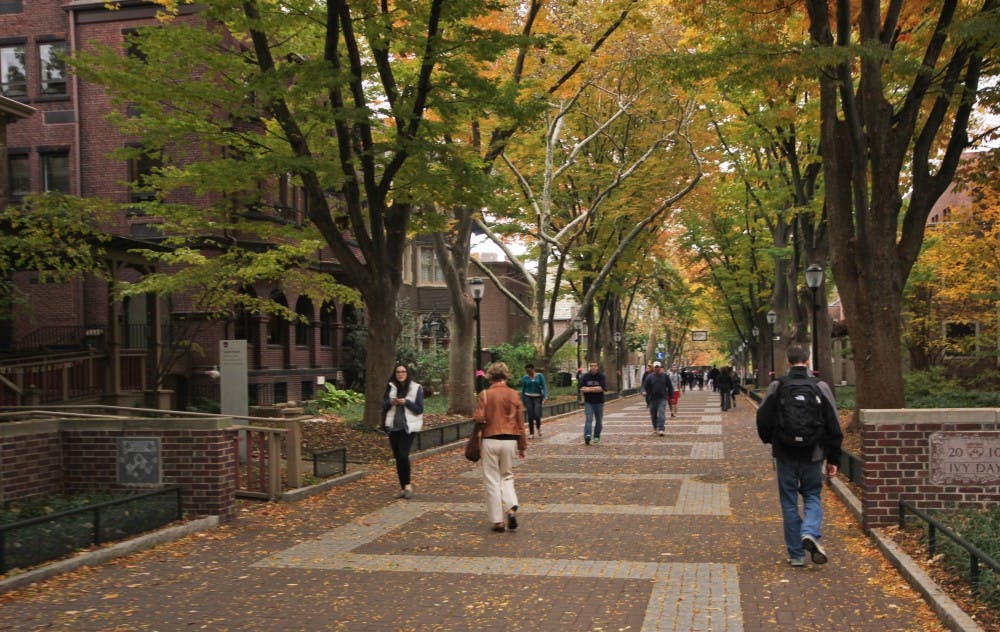It’s been more than four years since Penn has had a Rhodes Scholar — but the Center for Undergraduate Research and Fellowships has revamped the fellowship application process in an effort to add Penn names to the ranks of scholars.
For the first time, Penn put in place a faculty review committee to review and interview applicants for the Rhodes, Marshall and Mitchell Scholarships, three competitive awards for American students to pursue graduate studies in the United Kingdom and Ireland and select finalists to receive Penn’s official endorsement.
Prior to the committee’s instatement, students were welcome to apply and receive Penn’s endorsement so long as they satisfied the minimum requirements for the fellowships. Only a few applicants from regions with application quotas failed to receive an endorsement.
The faculty committee sought to emulate the actual fellowship decision-making process in its deliberations, incorporating interviews and even a mock cocktail party during which the applicants and faculty committee could interact.
This year, 51 students applied for the three fellowships. The faculty review committee selected 25 of those students to receive Penn’s endorsement. Of those 25 students, 20 applied for the Rhodes, 18 for the Marshall, and 2 for the Mitchell.
The faculty committee has no predetermined number of candidates to select, allowing them to choose to endorse as many candidates as they deem worthy.
The last Penn student to win a Rhodes Scholarship, which allows students to pursue graduate studies at the University of Oxford, was 2009 College graduate Sarah-Jane Littleford, who won in 2009.
Penn has produced 11 Marshall scholars — the most recent in 2011, since 1984.
A year ago, 2012 College graduate Meghan Hussey won a Mitchell scholarship, which supports graduate studies in Ireland or Northern Ireland. Hussey was Penn’s first recipient of the Mitchell.
“I suspect … that not enough Penn students revise their approach toward these fellowships. There is a tendency to replicate what was successful in getting into Penn. And a tendency toward too much autobiography, and not enough forward-focus,” O’Leary said.
Penn has produced winners of other prestigious fellowships over the years, however, with particular success in the Fulbright Scholarship, which sponsors research abroad. Since 2003, 159 Penn students have been Fulbright scholars.
“The sense is that given how great our students are, we should be doing better in winning these prestigious fellowships,” Executive Director for Education and Academic Planning Rob Nelson said. “That sense of ‘why aren’t our students doing better’ is kind of behind the drive.”
A College senior and one of the faculty committee’s endorsed candidates for the Rhodes Scholarship said that CURF played an instrumental role in her decision to apply for a fellowship. “I never really decided [to apply for the Rhodes]. It was just something that started making sense,” she said.
With most fellowships announcing winners in late fall, time will tell whether Penn’s efforts will pay off.
“The purpose was to provide greater support for students, and also to bring our processes in line with the vast majority of our peer institutions — who for the most part had internal endorsement processes,” Senior Associate Director for Fellowships and Operations Wallace Genser said. “We also hoped to mirror the experience that students would have in the next step.”
The fellowship application process puts college applications to shame, each requiring high academic performance and strong personal statements, in addition to several letters of recommendation.
“I would say to start thinking about it early – earlier than you think,” Brooks said, noting that the process “definitely takes more time than you think.”
Over the past few years, CURF has bolstered its support for students interested in applying for fellowships. The effort is epitomized in its Fellowships 101 program, which serves as an introduction to the application process. CURF has also focused its efforts on early outreach, assigning specific advisors to work with applicants to strengthen their applications.
Genser said that CURF hopes to further bolster its outreach efforts to potential applicants by recruiting former Rhodes and Marshall recipients who are now members of the Penn faculty, as well as recent Penn recipients of such fellowships, to talk about their experiences and the value in applying. Such outreach methods have proven to be effective in recruiting applicants, particularly among those who are unsure whether they want to apply.
“I had some idea when I came into Penn, even though it was kind of some far-reaching goal,” College senior Daniel Brooks, another one of the faculty committee’s endorsed candidates, said. “I didn’t solidify my plans until junior year.”
Despite the grueling process and the absence of guaranteed return, applicants said they found the application process to be rewarding.
“There’s little to no chance that you’ll get [a Rhodes], but it makes you really think about what you want to do and how you can make sense of the experiences,” the College senior said. “You have to make all of your nebulous plans coherent in a thousand words. That was the blessing and the curse of the process.”



